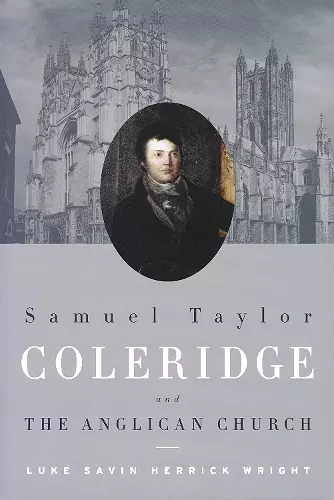Samuel Taylor Coleridge and the Anglican Church
Format:Paperback
Publisher:University of Notre Dame Press
Published:31st May '10
Currently unavailable, and unfortunately no date known when it will be back

This book is the first systematic historical examination of Samuel Taylor Coleridge's prose religious works. Coleridge (1772-1834), the son of a clergyman, "was born and died a communicating member of the Church of England." He was a prolific writer on the subject of the relationship between church and state. At age twenty-three, Coleridge published his first theological work, Lectures on Revealed Religion, which focused on the concept of reason facilitating virtue. Luke Wright maintains that this theme unites Coleridge's theological writings, including the posthumous Confessions of an Inquiring Spirit (1935). Although he was an advocate of radical politics in the 1790s, by the time Coleridge published The Friend (1809), he had become high Tory. His major contribution to Anglican religious discourse was the revival of the Tory position on church and state, which saw the two as an organic unity rather than separate entities forming an alliance. His writings were vigorously opposed to the Court Whig theory of church and state. After Coleridge's death in 1834, his arguments were taken up by William Gladstone and carried forward. Wright's careful reconstruction of Coleridge's dedication to church-state issues provides a new perspective on the writer himself and on the intellectual history of early nineteenth-century England.
“Wright’s book is essentially a provocative re-reading of Coleridge’s ecclesiology. Wright considers Coleridge’s theology as expressing an attack on the erastian and pragmatic conception of Church-State relations of William Warburton. . . Wright’s book is a daring, eloquent and innovative contribution to the theological literature on Coleridge.” —Ecclesiastical History
“Wright’s book began as a . . . project concerning the influence of Hooker upon Coleridge but grew to look at Coleridge’s relationship to the Church of England more broadly. This explains Wright’s twofold focus on church and state.” —Anglican Theological Review
"Luke Savin Herrick Wright, in Samuel Taylor Coleridge and the Anglican Church, maintains that 'the common thread that bound Coleridge's life's project together was theology.' His study . . . guides readers through the Pantisocracy that Coleridge laid out in The Lectures on Revealed Religion (1795) before turning to later writings such as The Friend (1809), The Statesman's Manual (1817), and Aids to Reflection (1825)." —Studies in English Literature
“Luke Savin Herrick Wright argues, in this scholarly treatment of Coleridge’s career, that one of the poet’s major undertakings was a political theology aimed at challenging the long dominant Whig view of William Warburton. . . . The book shows convincingly that Coleridge was a considerably more important religious thinker than has been generally recognized.” —Anglican and Episcopal History
“Focusing on Coleridge’s religious prose, this original, learned, and important study considers Coleridge’s conception of and investment in the interrelatedness of high church Anglicanism and Tory politics—views that will strike readers as proto-Victorian. . . . Historians will appreciate Wright’s book; literature scholars should heed it.” —Choice
“This erudite analysis of Coleridge's theology will provide scholars and critics with valuable new perspectives on a difficult subject.” —Duncan Wu, Georgetown University
“Wright’s book establishes, persuasively, that Coleridge’s radicalism, both political and theological, was indeed fleeting and that Coleridge made a very significant contribution to what has been called ‘the gathering forces of Toryism.’ Further, the book traces Coleridge’s adaptation of Hooker as he confronted, theologically, the writings of Sacheverell and Warburton and, ultimately, traces his idea of a clerisy and influence on Gladstone and thus the Oxford Movement.” —Richard S. Tomlinson, Richland College
"This is an impressively focused work detailing Coleridge's biographical journey through radical politics and high Toryism with an initial and final commitment to Anglicanism, despite encounters and affiliations with other denominations. . . . [A]n original work of scholarship that contributes to an understanding of Coleridge's thought and to the study of church-state theory of the nineteenth century." —Claire Colebrook, Pennsylvania State University
ISBN: 9780268044183
Dimensions: 229mm x 152mm x 16mm
Weight: 413g
304 pages